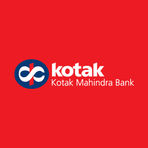Kotak Mahindra Bank Leadership Changes and Regulatory Challenges
May 6, 2024, 9:33 am
Kotak Mahindra Bank, a prominent player in the Indian banking sector, recently witnessed a significant leadership change with the resignation of KVS Manian, the joint MD. This move came as part of a broader restructuring following the appointment of Ashok Vaswani as the new MD and CEO. Manian's departure marked the end of a 29-year tenure at Kotak Group, where he led various business segments and played a pivotal role in the bank's growth.
The bank announced a new reporting structure post-Manian's exit, aiming to enhance leadership oversight and drive a sharper focus on its core businesses. Wholesale, commercial, and private bank segments will now report directly to Vaswani, while the Asset Reconstruction Division will report to Deputy MD Shanti Ekambaram. Ekambaram, who was also elevated to Deputy MD from a whole-time director, will oversee additional business segments and functions, including investment banking and institutional equity.
On the regulatory front, Kotak Mahindra Bank faced challenges from the Reserve Bank of India (RBI), which directed the bank to halt onboarding new customers through online and mobile channels and cease issuing fresh credit cards. MD and CEO Ashok Vaswani emphasized the bank's commitment to mitigating the RBI's actions and returning to pre-action growth levels. The focus shifted towards enhancing customer experience, deepening relationships, and addressing technological shortcomings to regain regulatory compliance.
Despite the regulatory hurdles, Kotak Mahindra Bank reported a robust financial performance for Q4 FY24, with a net profit of ₹4,133 crore, marking an 18% increase year-on-year. The bank's advances grew by 20% year-on-year, driven by strong demand in the unsecured retail segment. Net Interest Income (NII) increased by 13% year-on-year, while operating costs rose due to investments in technology upgrades.
The bank's asset quality showed improvement, with a decline in gross and net NPA ratios compared to the previous year. Deposits witnessed a healthy growth of 24% year-on-year, supported by a rise in term deposits. However, the CASA ratio declined, prompting the bank to focus on improving its CD ratio going forward.
In conclusion, Kotak Mahindra Bank's leadership changes and regulatory challenges reflect the dynamic nature of the banking industry. The bank's strategic realignment and focus on customer-centric initiatives position it well to navigate through uncertainties and drive sustainable growth in the evolving financial landscape.
The bank announced a new reporting structure post-Manian's exit, aiming to enhance leadership oversight and drive a sharper focus on its core businesses. Wholesale, commercial, and private bank segments will now report directly to Vaswani, while the Asset Reconstruction Division will report to Deputy MD Shanti Ekambaram. Ekambaram, who was also elevated to Deputy MD from a whole-time director, will oversee additional business segments and functions, including investment banking and institutional equity.
On the regulatory front, Kotak Mahindra Bank faced challenges from the Reserve Bank of India (RBI), which directed the bank to halt onboarding new customers through online and mobile channels and cease issuing fresh credit cards. MD and CEO Ashok Vaswani emphasized the bank's commitment to mitigating the RBI's actions and returning to pre-action growth levels. The focus shifted towards enhancing customer experience, deepening relationships, and addressing technological shortcomings to regain regulatory compliance.
Despite the regulatory hurdles, Kotak Mahindra Bank reported a robust financial performance for Q4 FY24, with a net profit of ₹4,133 crore, marking an 18% increase year-on-year. The bank's advances grew by 20% year-on-year, driven by strong demand in the unsecured retail segment. Net Interest Income (NII) increased by 13% year-on-year, while operating costs rose due to investments in technology upgrades.
The bank's asset quality showed improvement, with a decline in gross and net NPA ratios compared to the previous year. Deposits witnessed a healthy growth of 24% year-on-year, supported by a rise in term deposits. However, the CASA ratio declined, prompting the bank to focus on improving its CD ratio going forward.
In conclusion, Kotak Mahindra Bank's leadership changes and regulatory challenges reflect the dynamic nature of the banking industry. The bank's strategic realignment and focus on customer-centric initiatives position it well to navigate through uncertainties and drive sustainable growth in the evolving financial landscape.
